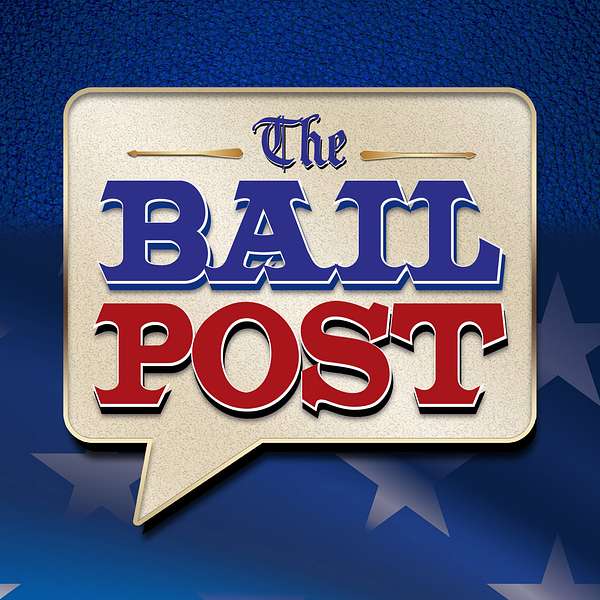
The Bail Post
What do we know about criminal justice reforms or bail reform? How do we evaluate whether reforms are helping or making the situation worse? How can we take politics out of criminal justice and focus on public safety? The Bail Post seeks to be a place where legislators and the public can educate themselves on a host of criminal justice/bail reform issues. With various attempts at criminal justice reform from New York to Texas to California, many people are confused as to what is working and what is not. With the passage of time, more and more data is coming to light over what successful reform looks like and what reforms have been found to not be working. The rise in violent crime across the country has been startling and law makers and the public alike are desperate to find legislation that is effective. Some might ask whether some of the reforms making the situation worse? The Bail Post is an on-going discussion that seeks to cut to the core to provide education on the various issues raised and to highlight what successful criminal justice reform looks like and what measures have been disastrous. Join us and educate yourself about the best practices that jurisdictions must implement to keep their communities safe, while ensuring fairness to defendants. As a someone said recently "Public safety is the foundation of a society. Without public safety we do not have a society."
If you would like to listen other episodes of The Bail Post you can find a subject matter index of the different episodes at- https://pbtx.blogspot.com/p/subject-index-to-bail-post-podcasts.html.
The host is Ken W. Good; an attorney in Tyler, Texas who has been licensed for over 30 years. He has argued cases before the Supreme Court of Texas and the Texas Court of Criminal Appeals. Mr. Good has written a book on bail called "Goods On Bail." He has also has had numerous papers published on Criminal Justice Reform issues. Mr. Good is a board member of PBT and serves on the legislative committee. Mr. Good is married and has two daughters.
The Bail Post
Episode No. 35- Lessons From Washington D.C.'s Bail System with Guest Frederick Cooke
Use Left/Right to seek, Home/End to jump to start or end. Hold shift to jump forward or backward.
In the bail reform debate, periodically we hear that changes should emulate the Washington D.C. system of bail which replaced the private sector of bail and with a government pretrial services department.
The guest for this episode of The Bail Post is a life long resident of Washington D.C. He is Frederick Douglas Cooke, Jr. and he was born and raised in the District of Columbia. He attended the District of Columbia public school system and graduated from McKinley Technical High School in 1965. After high school, Mr. Cooke enrolled at Howard University and graduated in 1969 with a degree in Psychology and a commission as a second lieutenant in the United States Air Force. Mr. Cooke deferred some of his U.S. Air Force service and enrolled at the Howard University School of Law where he was Managing Editor of the Howard Law Journal and Chairman of the National Conference of Law Reviews for the 1971-1972 school year. He graduated with honors from the Law School in 1972.
Upon graduation, Cooke served as the Law Clerk for the Hon. George W. Draper, II an Associate Judge of the Superior Court for the District of Columbia. In 1973, Cooke was appointed a Captain in the Judge Advocate General’s Department of the U.S. Air Force and served four years in that capacity.
In 1977, Cooke returned to the District and joined a large corporate law firm specializing in telecommunications, higher education, entertainment, and corporate law. He became a partner in that law firm 1982. In 1987, he was appointed by Mayor Marion Barry to serve as the Corporation Counsel of the District of Columbia (now called the Attorney General for the District of Columbia) where he was the head of a law office of about 250 lawyers and an equal number of support staff.
In 1990, he left government service and returned to the private practice of law. In his practice, he works primarily on governmental relations, municipal finance, telecommunications, land use, public contracting, sports, advertising, litigation, intellectual property education, general corporate matters, and civil and criminal litigation matters.
Join our discussion as we discuss bail reform, learn about the Washington D.C. bail system and surprisingly find common ground on what works and what does not work on bail reform issues.